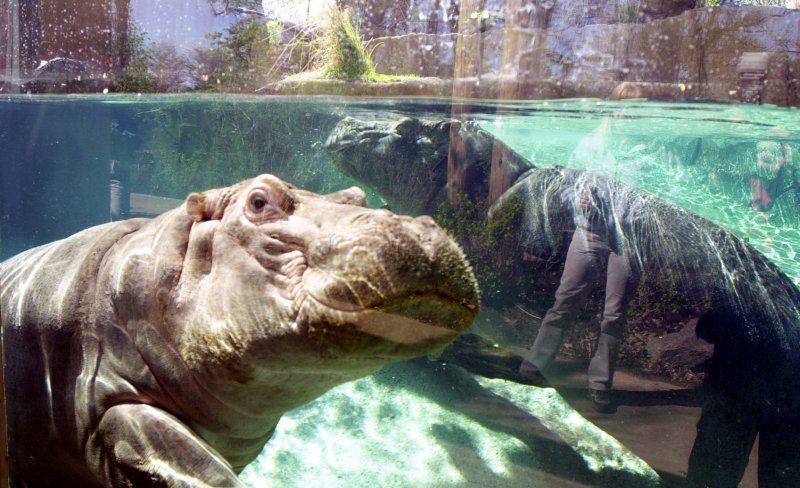A Nile hippo swims in the new Hippo Harbor at the St. Louis Zoo in St. Louis, Mo. Last week, Namibian officials said an anthrax outbreak might be to blame for the deaths of more than 100 hippos at a national park. UPI Photo/File |
License Photo
Oct. 10 (UPI) -- Namibian officials believe an anthrax outbreak may have caused the deaths of more than 100 hippos in one of the country's national parks.
"We first noticed the deaths of 10 hippos last week Sunday, but the number increased during the week," Bwabwata National Park director Apollinaris Kannyinga told the Namibian. "As we speak, the number of deaths is 109. We suspect an anthrax outbreak, but our veterinary team is still to confirm that."
The New Era reported that hippo carcasses were scattered by a river in the park.
"It happened in Zambia before and it mainly occurs when the level of the river is so low," said Colgar Sikopo, director of parks and wildlife management at Namibia's Ministry for the Environment and Tourism.
"This is a natural cause and with the animals dying people should not panic, as it won't negatively affect tourism in the area," he added.
This isn't the first time anthrax caused mass hippo deaths.
At the Queen Elizabeth National Park in Uganda in 2004, more than 300 hippos died from anthrax poisoning.
Scientists believe the death toll was particularly high because once hippos started dying, other hippos became cannibals ate the carcasses.
"The widespread mortality may be a result of the communal scavenging or 'cannibalism' of carcasses of anthrax-killed hippos by other hippos," biosecurity and agriculture analyst Joseph Dudley told the New Scientist at the time.
"I knew hippos were nasty, but I didn't know they went around eating each other," said anthrax expert Martin Hugh-Jones, a professor emeritus at Louisiana State University.















